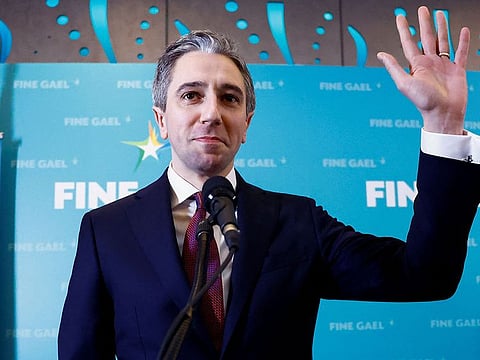Ireland's Simon Harris set to become Prime Minister in uncontested bid
Harris and Fine Gael will now need to prove to the electorate that they are fit to govern

Ireland's Simon Harris was named leader of his liberal Fine Gael party on Sunday, putting him on course to become prime minister following the unexpected announcement last week that Leo Varadkar would resign.
Harris, Ireland's higher education minister, stood uncontested to lead his party after potential rivals including Paschal Donohoe stood aside. His appointment will become formal following a parliamentary vote, which may not happen until at least April 8, after an Easter recess.
Varadkar "- who hasn't ruled out recalling lawmakers early to nominate his successor "- set off a leadership race when he announced his intention to step down after seven years in office. Ratification in the parliament is all but certain given the backing of members in Varadkar and Harris's party, Fine Gael, as well as the other main coalition group, Fianna Fail.
The next election must be held by March 2025, leaving the new prime minister less than 12 months to turn around Fine Gael's dwindling support and tackle housing and immigration challenges.
Harris, 37, has more than a decade of political experience and has risen quickly through the ranks of his party. He is set to become Ireland's youngest premier, beating the record of Varadkar, who took the job at 38.
Harris and Fine Gael will now need to prove to the electorate that they are fit to govern, following the shock resignation of its leader, surprise defeats this month in referendums to change outdated language on women and family, and rising support for opposition party Sinn Fein.
A Sunday Independent/Ireland Thinks poll this month put Sinn Fein at 27%, with Fine Gael at 20% and Fianna Fail at 18%. While that shows a slight drop, it still puts Sinn Fein on track to form the next government, though it would likely need a coalition partner to do so.
That would have potentially seismic implications. Sinn Fein's core tenet is the reunification of Ireland. It was part of the struggle for independence from the British in what is now the Republic, and in Northern Ireland, it had links with the Irish Republican Army during the sectarian violence known as The Troubles.
Sign up for the Daily Briefing
Get the latest news and updates straight to your inbox



